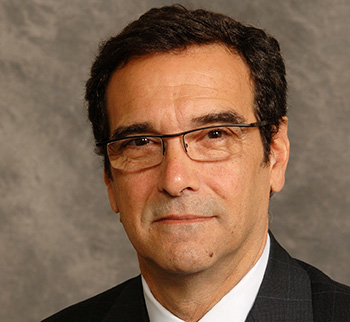MONTREAL — The Jewish community is satisfied that the character of the institutions it has built will not be threatened by Quebec’s sweeping reform of the health and social services system, and that its control of them not too seriously diminished.
Lawyer Eric Maldoff, the lead negotiator with the government over three months on behalf of the anglophone umbrella organization, the Quebec Community Groups Network, is confident the amendments made to Bill 10 meet most of the specific concerns of the Jewish community and the six institutions to which it has historic ties.
A major victory contained in the heavily revised bill is that individual institutions will retain their owner corporations, the separate legal entities that own the institution’s immoveable property. Originally, the proposed law abolished them.
The institutions’ foundations also remain untouched, as do the users’ committees.
Protection of the cultural and linguistic nature of the institutions has actually been strengthened, Maldoff believes.
Maldoff, who is also Quebec chair of the Centre for Israel and Jewish Affairs (CIJA), has a long history of involvement in health-care institutions, including chairing the Mount Sinai Hospital Foundation.
“In introducing these amendments, Health Minister Gaétan Barrette has shown a willingness to demonstrate a sensitivity to our concerns and to taking significant steps introduce positive measures to respond to them,” Maldoff said.
The bill, which was introduced by Barrette in September, was passed in the wee hours of Saturday, Feb. 7, after the majority Liberal government invoked closure. It contains about 180 amendments to the first version.
The Jewish institutions will, like most others in the province, lose their individual boards and be “regrouped” under 34 new regional bodies known by the acronym CISSS, whose boards of directors will be appointed by the minister. Today, the province has 182 health and social service agency boards.
Maldoff underlined that institutions that have a corporation and are recognized as bilingual (which is the case for all six Jewish institutions) are not being “amalgamated” into a CISSS, as originally envisioned, and will retain their distinct legal status.
The Jewish General Hospital, Mount Sinai Hospital, Maimonides Geriatric Centre, Jewish Eldercare Centre, and Miriam Home and Services will fall under the Centre integré de santé et de services sociaux du Centre-Ouest Montréal, along with three other institutions in that territory, while the Jewish Rehabilitation Hospital will be under a CISSS in Laval.
In a joint brief in November to the parliamentary committee studying the bill, CIJA, Federation CJA and the six institutions expressed fears that the proposed legislation threatened the institutions’ religious and cultural identity. Community members’ sense of belonging to them would be weakened thereby making fund raising and volunteer engagement more difficult, they said.
Maldoff said the corporations will continue to have the power to veto the sale of an institution’s real estate or any change in its use with a two-thirds vote of its membership.
In addition, corporation members will now have the power to veto – by the same majority vote – decisions by the CISSS that relate to access to services of a linguistic or cultural nature at that institution.
A two-thirds approval by the corporation members will also be required to revoke the bilingual status of an institution, which Maldoff said affords greater protection of English than existed before.
Another new feature in the bill is that each institution will have a “consultative committee” to advise the CISSS regarding the preservation of “the cultural, historic, linguistic or local character” of that institution, and to maintain a relationship with its foundation and any research activities.
That’s important, said Maldoff, because it will allow the foundation to deal directly with the corporation about the raising and allocation of funds, and not have to go through the CISSS.
As for representation on CISSS boards, Maldoff thinks the Jewish community will have a strong voice in the CISSS Centre-Ouest Montréal, with the majority of the associated institutions being Jewish.
Ten of the 19 board members are to be “independent,” selected from a list submitted by a seven-member “expert committee,” which includes three past presidents of the institutions under the CISSS.
As for the JRH, Maldoff said, “it has more recognition of its status than it had before.”
Maldoff added that the separate boards the institutions now have are not as firmly controlled by the Jewish community as perceived. Each seat is designated for different stakeholders, including various staff categories, users and the public.
“They are not exactly created by the community… the community could not just put who they want on them,” he said.
Maldoff said he did not know how many administrative jobs will be eliminated at the institutions. “The bill says that all senior management jobs will end on April 1, but they are being asked to reapply for positions.”
One of the main aims of Bill 10 is to reduce costs by cutting bureaucracy, and the law abolishes the intermediary Agences de la santé et des services sociaux throughout the province.
In a Feb. 9 statement, CIJA Quebec vice-president Luciano Del Negro said: “Ideally, we would have preferred a different solution to the problems facing our health care system, but, at first glance, the Jewish community is satisfied that the amendments introduced to the bill will ensure that the network of health and social service institutions will continue to remain responsive to the needs of our community and the wider Quebec society.”
